Are my thoughts really true? OCDDo you own your thoughts, or do your thoughts own you? Every thought you have has validity of who you are and what you wanted to think of...right? Errrrr Wrong! There is a point where you have to look at the behaviors you're doing because of the thoughts and see who has ownership. Here is what I mean! The thoughts that cross you remind predict your actions. We either are going to push a thought away or do an action or a behavior because of the thought. Intrusive thoughts are thoughts that we don't really want but we have them anyway. They come and go as they please. The thoughts we give attention to are the ones that want to stick around. But we don't always react to our thoughts. If we did, wouldn't we really be our thoughts? For example...I'm sitting at a restaurant and am looking at someone's food. I'm hungry, my food hasn't gotten here yet. I have the thought, I should go over there and take a piece of bacon. I wonder what would happen. I have feelings, I have thoughts....you know what I don't have....the action. This tells us that we ACTUALLY have a choice. I can see that thought as random noise. meaningless. Because a thought is a thought. Here is a literal definition of a thought. It is merely an idea or opinion created by your mind. It is sudden and spontaneous and has no particular origin. Wow. think of that. This thought has no home. It's a random collection of thoughts that can cause real emotions which make us doubt and question something. So who is owning your thoughts? Well in one way, you do. In another way. No-one does. It has no where to go until we do an action to put it in it's place or just let it fly on by. When it comes to these intrusive thoughts, they can be about anything and cause extreme doubt, which make you believe they are valid. These random thoughts can be toward relationships, getting sick, possible harm, memories, and even responsibilities. When these thoughts don't match your value system we need to treat them as fluff. Nothing. Garbage. A random signal. Meaningless. Once we attach to it and attempt to figure it out, it's going to happen more and more and more. That is when these thoughts own you. You're doing behaviors to remove the thought or perceived threat. Let me tell you why it's important to recognize that you aren't your thoughts. If I take every random thought and run with it. I'm going to be convincing myself that I'm a monster pretty darn quick. If I pass by a girl and my brain says, "wow, she's cute" my brain tries to make sense of this. It's going to say, "well, you must not love your spouse" or you "just cheated" OR I could say, "hey, thanks for the thought today brain." Ultimately, we need to stop taking our brain so seriously. It's screaming out thoughts just to get your attention and says they all mean something, but you're not going to fall for it anymore. Let's actually own these thoughts by giving these types of responses: "sup thought" "coolio, thanks for that." "yep, I guess that could happen" "maybe, maybe not." "you're welcome to stay thought" You're also practicing now pushing them away or making since of them. You're not giving them a good home to burrow into. Once you say, this thought has meaning. It just snuggles right into bed with you. Taking the opposite and not giving it a great answer and just letting it pass on by...it moves over to the neighbors.....no neighbor. It may stick it's head over the fence to try a few more times. But that response of "I do not care" is important so it knows, "man, you can keep trying, and I'm willing to listen to you, but I'm giving you nothing." But Nate! How will I know when it's a thought I actually need to pay attention to? Well, here's my indication. Anxiety mixed with an urge to know. It's a trap! Anxiety always tell the brain the thought is dangerous, BUT here's the kicker. If you don't actually see the danger right in front of you, and I mean it. RIGHT IN FRONT OF YOU. It's not super obvious. Then, we're treating a thought as a thought and allowing it to pass. If you treat a thought as a thought, but try to push it away, you're saying it has value. We don't want to do this. Give yourself more grace for having a thought. No really. Enjoy your life. Enjoy your brain and all the processes it does. the positive thoughts and even the negative ones. Our brain isn't trying to hurt us. Instead, it's actually attempting to help. It's just not doing a great job at it at times. Our job is to retrain it by the responses we give. That response is the most important thing in all of this. Think about this with the next thought you have that causes some distress. My action right now is going to determine if this is important or not. Choose wisely. The next time you have intense intrusive thoughts and you're trying to figure out what you're going to do with them....remember that you don't have to do anything. You have a choice if your thoughts are going to own you or if you're going to own your thoughts. Did you know there are at least 3 types of intrusive thoughts? I made a video about these and how to actually get them to slow down. You're going to need to enhance these skills so you can become even more of a boss! How to own your own thoughts
0 Comments
Intrusive Thoughts wont' stopDon't click on the ad!
Have you ever just been scrolling the internet or social media and you see those ads pop up. they can be flashy, they can have some great one liner hooks I just capture your attention. But whatever you do, do not click on the ad. these ads are like your random thoughts. Those random intrusive thoughts that you don't really want but they just keep coming back anyway. What's worse is that they start joining your everyday life and activities. These ads can be intrusive. If you allow those ads to be there. Actually will slow down and sometimes be non-existent. You just told your computer or your thoughts that these ads have no value in your life and you're simply not interested. When one topic disappears, another may take its place. This new flashy ad seems important. It's new, you're not used to it and it seems highly important for you to pay attention to it. Do not click on the ad! When you're scrolling through social media and moving from page to page, you notice this ad following you. The ads say, you don't really love your partner to you? What if you pushed somebody harmful? What if you're going to get sick now? have you ever thought about this past experience how awful it was? today's the day you need to figure out you were identity? how do you even know there is a God? Your monster and I'll show you why. How tempting would it be to just click on this and once and take a peek. They don't know me! seriously, I'm not that kind of person. I'm starting my faith. I would never harm anyone. I love my partner. Let me just click on this ad so I can see what the fuss is all about. It is so intriguing that this thought goes completely against who I am and I want to figure out why. this is completely natural. I would want to know why my thoughts seem to be against me. I mean I'm just scrolling through social media, I'm just doing my homework, just watching a TV show. These ads are relentless and follow the person anywhere. Do not click on the ad! You have clicked on the ad. here is what is going to happen. This ad that makes you question your partner is now going to show up everywhere. You just taught your brain that this thought or ad has value. It gave it permission to say, "here I am" "here I am" "remember me" "I'm still here" -- thanks for giving me some attention. I'm here to tell you that it has meaning. In the digital world, when someone clicks on an ad, it teaches it that you care and thus they spend more to put that ad more in front of your face. They often call it retargeting. This intrusive thought is retargeting you. The cool thing about these retargets is that if you stop clicking on the ad, they eventually go away. Depending on the budget, it may last a few days. It may last a few weeks. But the thing to always count on is that they will slow down. Who wants to spend "money" or "energy" on someone who simply isn't showing any interest? So if you're not getting what I'm saying. Do not click on the ad and here are some tips to give you better chance. Notice the ads, allow them to be there. Don't use an adblocker. We don't push the thoughts away. We don't try to control them. We let them be. When you're scrolling, you may notice the thought or ad, but your job is to continue scrolling. If you must give the thought a response they can look like this. "hey thought" "welcome" "great to see you" "sure" "maybe" "maybe not" "thanks for the thought today." "You're welcome to stay as long as you want." When we give these responses and you may have to do them a lot. It shows the brain that you've recognized the thought, but aren't giving them much value. It's the "I don't care" attitude. This attitude is the antidote to intrusive thoughts. Allow them to be there, respond differently than you normally would and move forward. Continue living life and do exactly what you want to do. These thoughts may infiltrate various aspects of your day and life but don't stop living. You not stop moving forward. Just like these ads, it got nothing to retarget when you simply give them no value. And as these flashy ads keep switching we treat each one the same way. Not one thought is more important then another. Thoughts are thoughts. Let them be thoughts. We can't ignore the anxiety and distress that come from these thoughts. Just know that these feels tend to be false. it's that extra push for you to click on those ads. Instead, we treat these feelings the same. To me, it's a false signal. Anxiety without immediate danger is false anxiety. It's based on a guess and on a meaning that you've put upon this thought. We can treat this anxiety the same. "hey anxiety" "welcome" "you're welcome to stay" "I love love love these feelings" When our response to anxiety changes. You're putting your arm around it. It learns that as it's freaking out, you're cool as a cucumber. Teaching it to no longer freak out about an intrusive thought. It often doesn't know until you teach it. These ads have nothing on you. You're too powerful. Tell yourself this! Don't click on the ad the next time your intrusive thought demands attention. Act as if you don't care. Welcome it. Acknowledge and move forward. Speaking of intrusive thoughts. You need to enhance your skills even more. I've come up with even more responses to these pesky thoughts. Go watch that video here. It's worth your time! OCD CompulsionsThis is Nathan Peterson, licensed clinician and OCD specialist. This one compulsion is so very common and most don't even know they're doing it. I often talk about sneaky compulsions. These compulsions come in so many different forms. If you don't know what a compulsion is, it is the thought, behavior, or action that someone might take in order to attempt to gain certainty with their fear and/or reduce anxiety. Here's the compulsion. Telling your OCD story. No don't get me wrong, there are times in your life where you need to tell your experiences. Go through the thoughts and feelings. But many tell their story daily. Whether it be on forums, groups, or to their loved ones. It seems so innocent to do so but let me share with you the dangers of taking this path. What ends up happening is that the individual that suffers with OCD shares the story time and time and time again. And when I mean story I mean they are sharing an experience they had in the day. They are sharing an intrusive thought that came their way. They are sharing a feeling that they have. Essentially, they are confessing their thoughts. They are not necessarily looking for reassurance. Instead they are just simply sharing what they're going through. Here's the tricky part, for most, not all... They are receiving reassurance. Maybe they don't even though they are doing so. They are receiving reassurance because they just shared their experience to someone and that person did not freak out. That person may have given them reassurance. They may have looked at their facial expression to see if they think I'm crazy or do they not. Do you think I'm OK or do they not. The sense of being a roundabout way of receiving reassurance. I mean heck, we're taught our whole life to share experiences. But when it comes to intrusive thoughts and obsessions, we were verification and certainty. We want support. See what happens if you don't. If you feel that overwhelming need to share, maybe you feel like you won't get better until you do, it may be a compulsion. Maybe delay it. You're not waiting for your spouse to get home to tell them what you've gone through. You wait two or three hours after they've already been home. See if you can wait. If your loved one or support person has asked you to share what you've gone through. You may still have to evaluate and ask yourself, why am I sharing this intrusive thought today. Is it to gain support what is the gain Comfort and reassurance. There are obviously instances where sharing your experiences and story are important. To someone like a therapist. Some may set up checkpoints. Meaning they have set a certain time every other day or every week whatever is reasonable to share and experience at a certain time. But again it's looking at if this is going to help or hurt your OCD. I would love it if people changed talking about their OCD experience that day to here is how I used treatment with my OCD experience. I had this intrusive thought today while I was driving. Guess what I did, I kept driving, I didn't look in my rear view mirror, I didn't go back and check. I kept driving. What does does is promote treatment more than give the story more power and value. Think about this the next time you want to share about your intrusive thoughts or OCD story. If you've been watching my other videos, we've learned that OCD is OCD and we give the thoughts no value or power. So, to help with this process, not going through it and "figuring it out" shows that it's all fluff. It doesn't mean that you don't matter, it may just mean that those thoughts are error messages that don't need to pay attention to. To help you build a stronger muscle to stop these compulsions, go watch this video, where I talk about simple tricks to stop compulsions all together. Thanks so much for watching and I'll see you next time. Treatment for OCD compulsionsWhy OCD feels so realI'm Nathan Peterson, a licensed clinician and OCD specialist. Have you ever wondered why your OCD feels so incredibly real? For many, they know that the thought isn't real, but it feels real. So when something feels real, we react as if it's real....right? Think about it this way. When we watch a movie we can become immersed and get absorbed. We get hyper focused, get lost and even confused. We can lose touch of reality for a bit. For some they may watch the same movie and not be connected or immersed at all. So what's the difference? One person is allowing and inviting themself to get lost in the story and the other person see it for what it is and keeps it at the surface. Both have control over this decision. So when it comes to OCD and an intrusive thought, one main point to bring it even more value is the anxiety or distress attached. This anxiety says.....HEY, this is important. Keep thinking about this one. As you get engrossed into the narrative or story, we tend to feel more emotions and feelings. Making it feel...well...real. When something feels real, we spend time trying to "figure it all out" and prevent a possible catastrophe. Thus adding even more value to it. So when I hear someone tell me that their OCD thoughts feel so real, it typically isn't the first time they've had that thought. They've had this thought many times and in each moment taken the time to try to understand it. Thus making it feel more real overtime. We also know that OCD attacks what people care about. We have many doubts and questions in our mind everyday. But most of the time they won't feel real because we don't care about it. For instance, I may be watching tv and hear about how easy it is to get fungus under our toenails. Why do I not care about this....because it's not my thing. It's a threat like any other. My brain only cares about whatever I made a connection with and put value to. Maybe it's my relationship, maybe it's a certain disease, maybe I'm focusing on my breathing. Either way and either topic. It's all the same. One only feels real because we make it feel real. To stop this progression of realness, we can see or hear a threat and choose to not put value to it. Choose to see information as information. Choose to keep things uncertain. Choose to stop ruminating. Choose not engage in a compulsion. The urge may be there, but you always have the choice. When you take this proactive choice to not engage, it no longer feels real. Why? Because you are telling your brain that you simply don't care. You're letting life be what it is. And don't fall for the, "but I'm different" - That's just another trick that feel's real. You're a special person, but your topic or content of the obsession is not. So ultimately, let it feel real. Just choose to not engage. Not figure out. It's got to be pretty obvious that there is a problem. 1000% hit you in the face obvious. If that is not there, we may treat this "real feeling" as a false signal. Have you ever had a memory of the past, maybe a story that you've told over and over and over again throughout your life. Sometimes there is a point where you're actually not sure if it happened the way you've been telling it. Maybe it started out as an embellishment, but overtime it actually feels real with some confusion. I think of this the same way, we've told the story so many times, just like the OCD brain tells the content of the story and all of a sudden, we're confused on what is accurate and what is not. In simple terms: Stop telling the story! Stop creating a narrative. Stop with the "what ifs" - You don't need the story. Yourself without OCD doesn't need the story. Let it go. Sit with the discomfort and the "realness" feelings. Let it pass. The more you do this, the less scary and real it may feel. The way we think is the way we feel. If I felt someone is judging me, I'll feel anxious, scared, and sad. Even if this is untrue. I made up a story and fell for its tricks. Don't fall for it. Since OCD affects our mood, see how you can control these mood swings with this video here! Thanks so much for watching and I'll see you next time. OCD feels realOCD seems realHow do I know if it's OCD?I asked you to tell me the most common thought you have regarding your OCD and here is the resounding answer. "How do I know if my thoughts or feelings are OCD or if they are really me.?" If it really is me, it means I'm a scary, dangerous, dirty, and bad person. But if it's my OCD, then I get a pass. So why can't you tell if it's really your OCD or if it's really you? In this video you're going to learn why it's so difficult to see the difference, if it even matters, and you how to respond the next time you question it. No time to waste! Let's get to it! I'm going to give you the quick answer, but that doesn't mean you'll leave the video right...right...right! I need you to stay to the end. Here's the sitch, You cannot tell if it is you or your OCD because of the emotion and attention you are bringing it. Because you have OCD, the connections in your brain are attaching a big emotion such as anxiety to an intrusive thought. An intrusive thought that is likely to be had by most people. It's okay for our brain to throughout intrusive thoughts. Doesn't matter what it's related to. This anxiety felt make everything feel dangerous and important. It activates this fight or flight response. When we're in this mode, the brain and body go into problem solving. You have to know if what you're experiencing is true or not. You have to know if you're really in danger. Protect, protect, protect! So in simple terms, the reason you question if it's really you or your OCD is because you don't want it to be you. Because it goes against your value system and who you are as a person if these thoughts WERE you. But, that's the nature of OCD, going toward your values, making something feel extremely real, putting lots of power to it and then it stands back to see how you're going to respond to it. Before we give that response to the OCD, We're going to keep it waiting, because it hates it. Hey bro! You're not sure if this thought is you or OCD, so on the safe side, do the compulsion. Does this sound familiar? Most will feel guilt or shame because they feel like they need to....just in case that thought wasn't really OCD. So we know it's tough to decipher and let me give you the golden answer of how you can know if it's OCD or not..... "Shifty eyes" ...... That's not your job. Ahhh, I see you ready to click off the video. Seriously, hear this. The more you attempt to discover if it's OCD or not the more you stay stuck. And I hear you on the other side of that screen. "BUT, I NEED TO KNOW IF I'M A BAD PERSON OR NOT OR IF I WOULD REALLY DO THAT THING OR NOT." FALSE! You don't, your OCD would like to know that answer only to make you doubt again. So here is a response instead.... Ew..."did you just have that thought about that person? I can't believe you did that?" My answer... Thanks for the thought, bro. Yea, but that's really you and not your OCD, this is important. "Okay, thanks for the feedback, riveting stuff." You need to feel guilt. Shame on you. "I'm loving all those feelings." We don't reason with it. We don't use logic. We don't figure it out. We live our lives! Your job isn't to figure this all out. It's to NOT do any compulsion because what we learn is that the obsessions don't matter. They really don't. It's all white noise. The way you are responding to this question, "is this me or my OCD?" will determine the trajectory of your triggers, anxiety, shame, doubts and guilt. Some make commitments, "I choose to not figure out what is real and what is my OCD?" Like ever. That's not my job. My job is to live life right now in this moment. I will not do any compulsion. This does not mean that for the rest of your life you're suffering. It actually means, you're brining more rays of hope that bring you closer to recovery. These compulsions are tough to break, so please go watch this video where I give some simple tricks to help you stop these compulsions. Thanks so much for watching and I'll see you next time! OCD TreatmentOCD or meHow long does OCD recovery take?Isn't this the question we have with anything we want to go away in our life? How long will I have this? This question can cause a lot of anxiety to think about and bring a lot of comfort. It all depends on what mindset you have. To jump right into it, recovering from OCD depends on many factors. Do I have the right tools and am using the right treatment? Am I actually using the treatment often? Do I have a strong foundation for therapy? For many, treatment can be relatively quick. Individuals can feel better sooner, while others it may take longer. It also depends on the severity of symptoms. It's already infiltrated itself into your day, we might as well do something with it. I almost hesitate to give a specific number because I do not want you to be your timeline because your timeline is YOURS. Here is what I've heard many specialists suggest their own research. Many can expect to feel recovered between 12-20 therapy sessions and can see a clinically significant decrease in OCD symptoms. Others give a timeline of 2 months. Personally in my own practice, I've seen individuals for a few weeks and others a couple of years. There is not that magical formula that fits each person, but I'll share with you what I see as a standard for individuals getting better quicker. -Using exposure and response prevention the correct way. -Building an exposure hierarchy to help you face your fears in a gradual way -Doing these exposures daily and when I mean daily I don't mean 1x a day. I mean, making it your part-time job. It could be hours. -Simply put. You've got to stop doing compulsions. Even if you're feeling anxiety. -Your focus must be on recovery. It needs to take priority. -You must accept the anxiety, fears, doubt, and guilt and decide they bring no more value into your life. You can't be wishy-washy. "I'll accept this fear, but have to figure out this one." All these things are taught in my online OCD course. I'll link it here. You can even try it for free. Ultimately, who's going to get better quicker. The person who knows the tools and will do them every once in a while or the person who's dedicated themselves to recovery. They recognize the pitfalls, where they can improve and use resources around them. I do want you to know that you can recover from OCD. Things can get better. I also want you to have realistic expectations of what "recovery" means. For some, it may mean they are feeling minimal symptoms. For others, they've reduced symptoms up to 60% and are okay with that. Others may not feel symptoms for weeks, months, years. But here's the deal, this doesn't happen by doing treatment for a few months and then be golden for years to come. It's something you work on to maintain the progress that you've made. So when you hear others say online, "I am recovered" keep this in mind. Here is the most important thing. Your recovery is your own. Your timeline is your own. If you do get caught up in, "how long will this take" you may give yourself an answer like, "it takes as long as it takes and I've accepted this." I want you to get on top of this, you need to go right now watch the 25 tips for succeeding in your own OCD here. Thanks so much for watching and I'll see you next time. How to recover from OCDRecovery from OCDmanifesting ocdStop Manifesting The idea of manifesting thoughts can sound exciting. If I think hard enough and have the right mindset, I’ll get all the things I want in my life. Sounds great right? In this video, let's talk about why manifesting and the law of attraction can be harmful to your mental health. Especially if you have OCD or anxiety. The word ‘manifestation' means to create something or turn something from an idea into a reality. In psychology, manifestation generally means using our thoughts, feelings, and beliefs to bring something to our physical reality. Now, there is a difference between wanting something and having a great mindset to achieve it... vs. using the idea of manifesting to get what you want. Some believe that you must do certain behaviors to get what you want. If I want to attract someone else and move them closer to me, I can start by thinking really hard, putting all my energy into this thought. Using meditation, to really visualize that person coming into your life. I picture it all, I’m feeling like I want it to happen. I may be using mantras and using words like, “I’m going to get together with that person” or “when we date, we’re going to watch a lot of movies.” Some use scripting, where they will write out what they desire and be confident they are going to get that thing. Seems pretty harmless right? Maybe it's just confidence. I want something sooo incredibly bad that I simply have a commanding, positive attitude about it and expect it to happen. Have you ever been on the receiving end of someone else’s manifesting? It’s like saying, someone else has control over you. For some reason you’re all of a sudden drawn to them. My body is moving toward the door, I know think this person is attractive.... It’s saying their thoughts made something happen. Me having a positive attitude about getting a job, being confident, using mantras doesn’t guarantee me a job. I have to WORK for it. Positive thoughts are wonderful and great, they can bring motivation to move toward things we want and achieve our dreams, but NOTHING is guaranteed. Having this mindset that our thoughts made something happen trains our brain to make connections that are complete guesses. Maybe, I got the job because I was qualified and they liked my personality. This video isn’t about not having positive thoughts. It’s about understanding the dangers of thinking your thoughts are going to make something happen. There is something called the law of attraction, of which I agree with. It says that you "will attract into your life whatever you focus on." Agreed..... But Here is danger. What happens when you start having intrusive thoughts? The thoughts that just won’t stop. You don’t have control over how many times you have them. You have thoughts about something bad happening. You have negative thoughts about someone else. You have negative thoughts about yourself. These thoughts can be sexual in nature, harm related, religious and just plain random. A thought like, "you're going to throw your baby down the stairs" --- Will my brain now believe that I am manifesting something. It's likely, if I believe and follow the manifesting mindset. The brain lives in fear and prevents something bad from happening when in reality, a thought is a thought. Then it applies to the negative intrusive thoughts. My intrusive thought says, something bad is going to happen as school and tells you this 100 times. With manifesting and the "law of attraction", you must now believe that something bad will now happen. Individuals who struggle with OCD and anxiety often think that their thoughts mean something great. Anxiety warns them of this danger, so they must follow it right? This is called thought action fusion. Because I have a certain thought, it will now manifest into something real. This affects our mental health because we will now see all thoughts with a lot of meaning. It may stop us from living the life we want because of the fears associated with having a thought that you did not choose to have. What’s even scarer is the tips those teaching how to manifest. For instance, advice given is to use the 5x55 technique. Write down what you want to happen 55 times for 5 days strait. Hello, does this not sound like a compulsion. Something you are choosing to do to get a desired outcome that you have zero control over. In fact, it plays with magical thinking OCD. People do behaviors to avoid negative situations from happening. Things that actually wouldn't have happened, but just in case, I'll do tap this thing a few times. Ultimately, here’s the deal. If you want something positive in your life. Be confident, move towards your goals. If it happens it happens. Live and enjoy life. Not get stuck in thinking our thoughts alone will make something happen. I would love love love a million dollars, maybe, if I put all my energy into thinking about having it, I write it down a thousand times, I am confident I will have it....dude, it may show up in my mailbox. Does that sound silly? It does to me. Thoughts are not facts. Thoughts are thoughts. It’s an electrical signal that spreads like a wave of a thousand neurons. The only power we have after a thought is formed is what we’re going to do with it. So if I want a million dollars, I'm going to work for it. I'm going to have a positive mindset. I'm not going to magically "manifest" it into my life or my mailbox. Maybe we change the word manifesting to to plain old planning. My goals are get a promotion at work. I'm going to write this down and create steps for me to achieve it. I will evaluate my goals and change things as needed. does manifesting really workmanifest thoughts into reality |
AuthorNathan Peterson specializes in working with OCD and Anxiety related disorders and has done so for the past 7+ years. Archives
January 2023
Categories
All
|

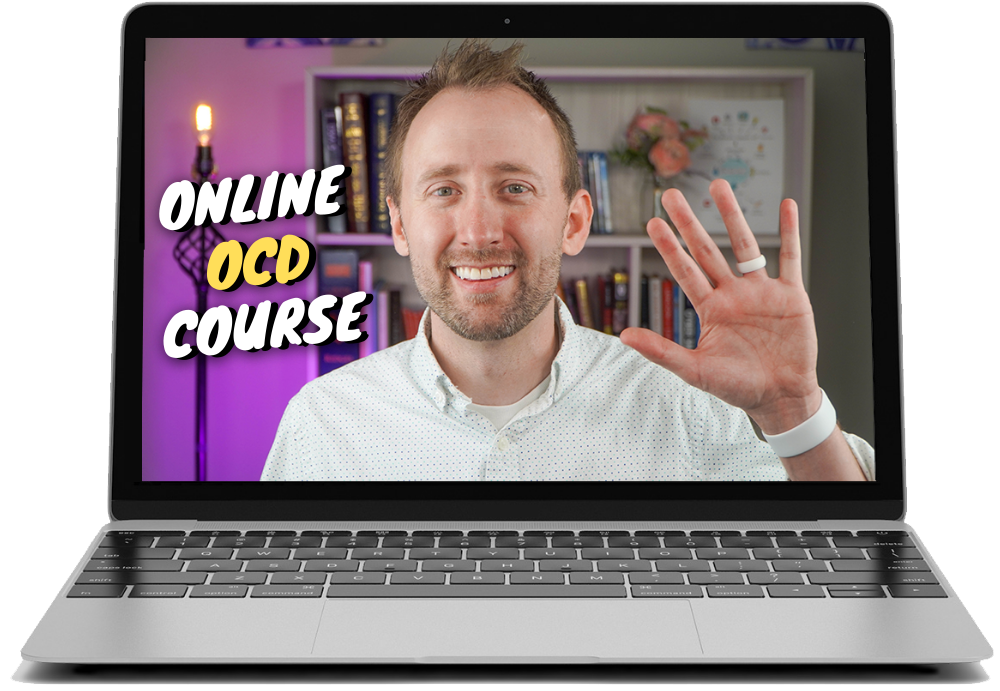
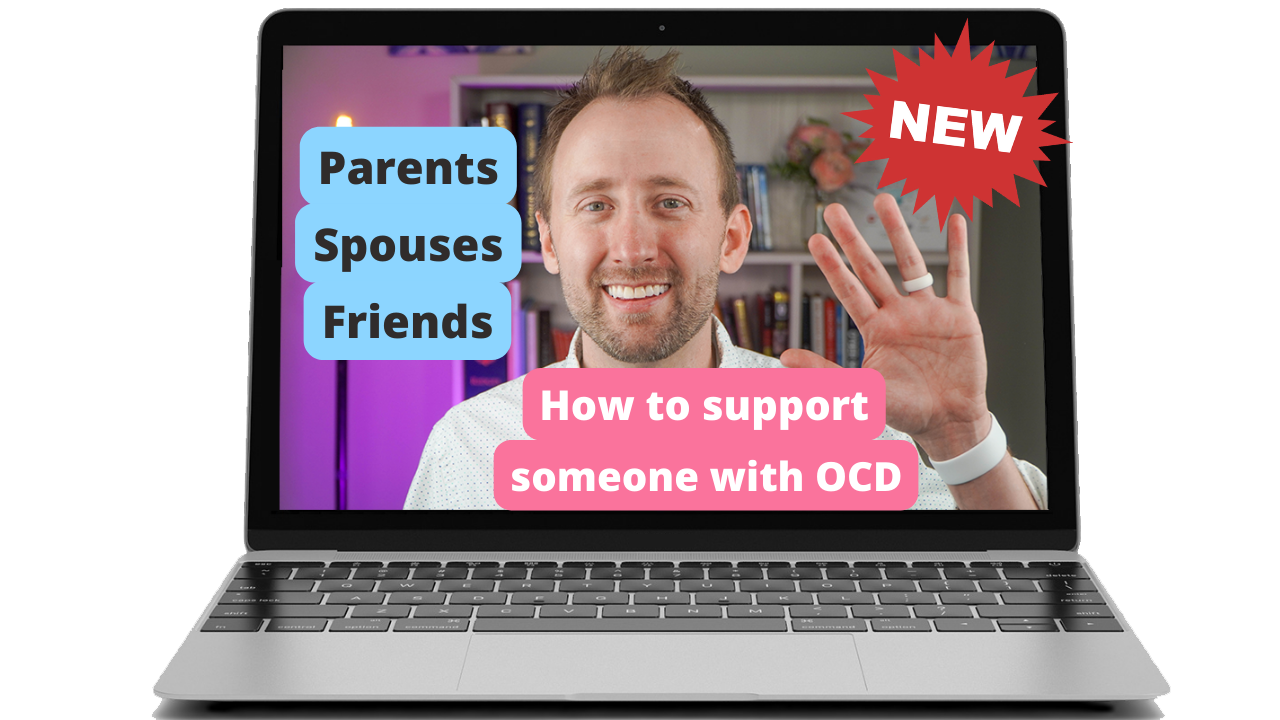
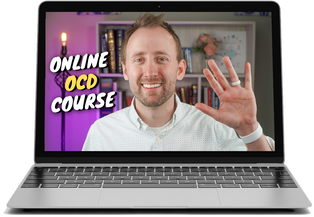
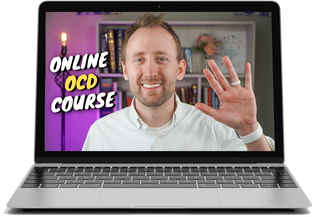
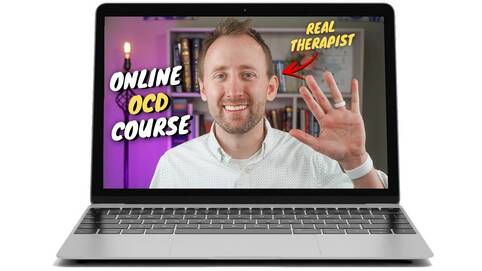
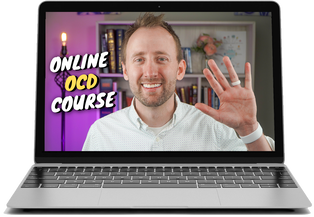
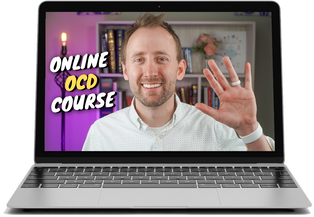
 RSS Feed
RSS Feed